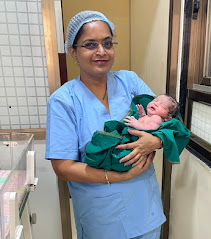Reply: Since Premenstrual Dysphoric Disorder, or PMDD, is very common for a lot of women, there are a variety of ways to ease its symptoms of bloating, irritability, and moodiness. Women are encouraged to avoid or decrease caffeine intake, limit salt, and to develop a healthy exercise routine, among other things. There are also vitamin supplements that are intended to specifically help with the symptoms of PMDD. If natural methods don't alleviate your symptoms, there are certain medications that can be prescribed by a physician.
Question: I experience cramping and moodiness during my period. Is there anything that I can do to help with this?
Question: When do I need to start thinking about getting a Mammogram?
Reply: Women aged 40 and older should have a mammogram every 1 to 2 years. Women with an increased risk of breast cancer due to things such as family history are advised to talk with their physician about whether to have mammograms before the age of 40.
Question: I am experiencing some burning while urination, is there anything to help with the pain?
Reply: When dealing with burning urination, it is advised that you increase your fluid intake. Women who experience burning while urinating are strongly encouraged to have their urine analysed so that the exact problem can be identified and diagnosed.
Question: I recently found a lump in my breast. What should I do?
Reply: Women who have found a lump in one of their breasts should contact their gynaecologist IMMEDIATELY to schedule an appointment for an evaluation.
Question: I am having problems with constipation. What can I do?
Reply: The natural ways to alleviate constipation include, eating certain foods like bran cereal, broccoli, cauliflower, dried peaches, raw carrots, and any other high in Fiber foods. Women are also encouraged to increase their water intake to 6 glasses per day. Some medication that can help with constipation includes Lactiz, Evacuate, and Duphalac Liquid, just to name a few.
Question: What should I avoid eating while pregnant?
Reply: Women are strongly urged to avoid alcohol during pregnancy, and to limit caffeine to no more than 300 mg. per day, which equals roughly two 5-ounce cups of coffee. Women are also encouraged to avoid the use of saccharin, soft or unpasteurized cheeses, raw meats & fish, and unpasteurized deli meats.
Question: How much can I exercise while pregnant?
Reply: For people who regularly maintain active lifestyles, it is safe to continue to do so during pregnancy, though women should strive to stick to an exercise pace that is not too vigorous or exhausting. For women who don't regularly keep an active lifestyle, it is recommended that at least some light exercise be incorporated in to their daily life; just walking a moderate pace every day should suffice.
Question: What symptoms should be reported to my physician?
Reply: Just some of the symptoms that should be reported to your physician includes contractions, bleeding, intense headaches, cramping, decreased movement of the baby, a fever of over 100 degrees, loss of fluid from the vagina, or any other symptoms that seem abnormal.
Question: What are some suggestions for dealing with morning sickness?
Reply: Some recommendations for easing morning sickness includes:
- Get out of bed slowly in the morning, and try to avoid sudden or jolty movements
- Eat several small meals during the day so your stomach doesn't remain empty for long
- Avoid fried, greasy, and spicy foods
- Drink soups and other liquids between meals
- Eat a piece of bread or a few crackers before you get out of bed in the morning, or whenever you feel nauseous
- Have some juice, milk, yogurt, or cottage cheese before you go to bed or before you wake up
- Ginger candy or tea can help nausea.
- Vitamin B supplements can also help relieve nausea





